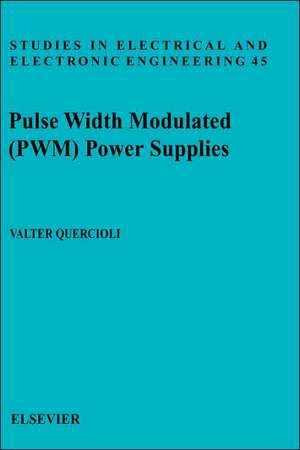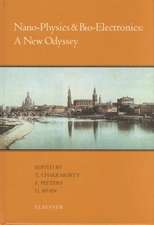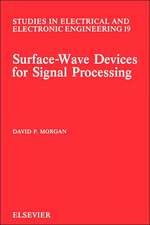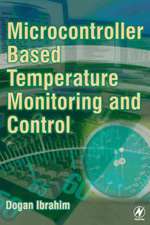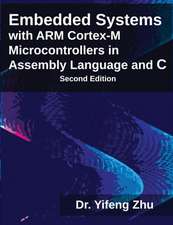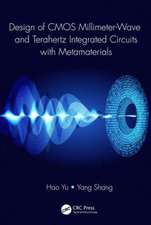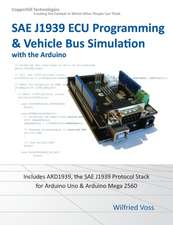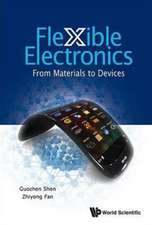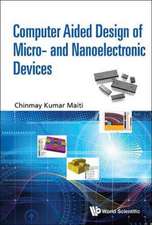Pulse Width Modulated (PWM) Power Supplies: Studies in Electrical and Electronic Engineering, cartea 45
Autor V. Querciolien Limba Engleză Hardback – 14 apr 1993
This volume provides designers with an in-depth overview on the latest interdisciplinary methods involved in the design of switching mode power supplies, providing the reader with a tool whereby the learning time can be reduced and information about switching mode power supplies design processes can be easily accessed. The book adopts a systemic approach, subdividing the information into functional blocks whose properties and relationships are evaluated and compared with each other. A comprehensive list of references to the literature is given thus enabling the reader to follow up on more detail.
Preț: 1084.39 lei
Preț vechi: 1485.46 lei
-27% Nou
Puncte Express: 1627
Preț estimativ în valută:
207.49€ • 216.66$ • 171.34£
207.49€ • 216.66$ • 171.34£
Carte tipărită la comandă
Livrare economică 15-29 aprilie
Preluare comenzi: 021 569.72.76
Specificații
ISBN-13: 9780444897909
ISBN-10: 0444897909
Pagini: 310
Ilustrații: 1
Dimensiuni: 156 x 234 x 19 mm
Greutate: 0.64 kg
Editura: ELSEVIER SCIENCE
Seria Studies in Electrical and Electronic Engineering
ISBN-10: 0444897909
Pagini: 310
Ilustrații: 1
Dimensiuni: 156 x 234 x 19 mm
Greutate: 0.64 kg
Editura: ELSEVIER SCIENCE
Seria Studies in Electrical and Electronic Engineering
Cuprins
1. The Power Supply System. Power supply parameters. Linear vs. switching power supplies. Voltage mode, voltage feedforward, current mode. 2. The Input Stage. The basic ac/dc converter. Bulk capacitor sizing. The computation of ton. The inrush current problem. The bridge diodes sizing. The power factor. The EMI problem. EMI filtering. 3. The Flyback Converter. Output voltage computation. Computation of Dmax. Computation of Lp. Comparison between DM and CM. The transformer. Sizing of the core. Computation of the secondary winding number of turns, Ns. Parasitic interactions between the switching transistor and the transformer. Transient switchings. D-phase power losses in the MOSFET. Resultant waveforms. MOSFET transistor sizing. Output diode. 4. The Forward Converter. Output voltage computation. Computation of Dmax. The transformer. Parasitic interactions between the switching transistor and the transformer. Output and demagnetization diodes. 5. The Push-Pull Converter. Output voltage computation. The "volt-seconds" problem. The transformer. Semiconductor switch. Output diodes. The "half bridge" variant. Computation of the half bridge's capacitances. Cascaded push-pull. 6. The Output Stage. The filter capacitor. The C filter. The LC filter. The coupled inductor. Comparison "Independent inductors vs. coupled inductor". Design conclusions. Postregulators. Magnetic amplifier. Desaturation of the magnetic amplifier. The magnetic amplifier's control-to-output transfer function. The mag amp's delay problem. Mag amp compensation. 7. SMPS Control Theory. Electrical circuits modelling. Calculation of the transfer function. Frequency response. Control targets. Controller design. Conclusions. Compound excitation signals. Switching networks. Control techniques. Voltage mode techniques. Input voltage feedforward control. From voltage mode to current mode: the conductance control. Conductance control loop analysis. Voltage mode loop analysis. Current mode: the peak current control. Slope compensation. Control loop insulation by optocouplers. The right half plane zero. Output impedance computation. References.
